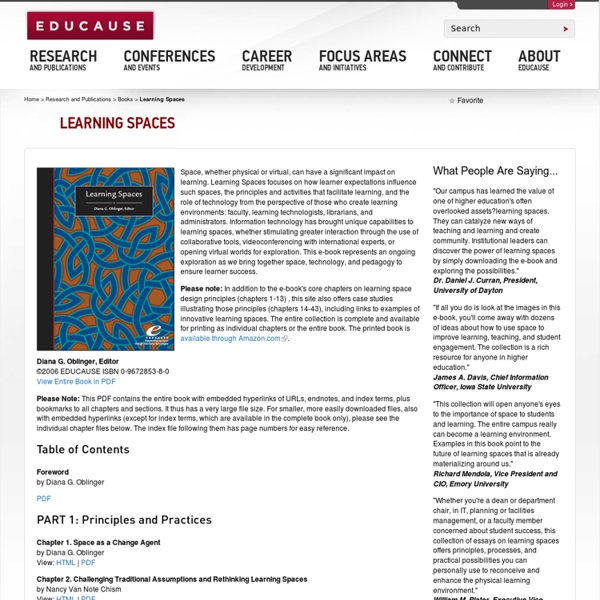Designing Text-based Information
Sharebar You might practice information design every day and not know it. Information design refers to transforming complex, unorganized or unstructured information into meaningful and easily-accessed content. Sound familiar? Information design is multi-disciplinary. It’s concerned with visual presentation, the structure and organization of content, the accessibility of information and how it is used. 1. Left-justifying paragraphs of text is good. A paragraph of centered text is difficult to read. 2. When the background is noisy, it provides extraneous visual cues that disrupt word perception. Text on a textured background detracts from readability Text on a quiet background is easier to read. 3. According to Robin Williams, author of The Non-Designers Type Book, the underline interferes with the letters it is emphasizing. Underline is old school, use bold or italics for emphasis 4. High contrast improves readability 5. Light on dark reduces readability for most people 6.
Top 5 Workplace Trends for 2017
2016 was a big year for workplace design. From the large influential companies across the world to the smaller businesses, workspace design was at the forefront of CEO’s minds, as an extension of their brand’s ethos and culture. Many companies have re-designed their workspaces in response to the work of incredibly successful companies such as Google and Apple who have been creating workspaces that are not only cool, collaborative and full of tech, but future-proof. For them, the proof of the power that an innovative working space has on an organisation is in their staff’s happiness, loyalty and their profit margins, which continue to boom. So what are the biggest workspace trends of 2017 looking like? 1. The biggest trend to follow on from 2016 is the employee and candidate experience leading to talent attraction and retention. In a recent candidate experience study by workplacetrends.com nearly “60% of Job seekers have had a poor candidate experience and 72% talk about it”. 2. 3. 4. 5.
Ways to Organize Information
The amount of information available to the average person in the workforce is exploding. With informal learning coming to the forefront, instructional designers may increasingly be responsible for designing information, rather than online courses.This could be for websites, interactive resources, references, support systems, mobile glossaries and things we haven’t even thought of yet. If you’re called upon to perform information design, you’ll want to make the information manageable, findable and easy to use. One approach to this is the LATCH system, created by Richard Saul Wurman. . He writes that there are mainly five ways to organize information and these are applicable to most situations. LOCATION Use this when organizing information around locales, from grand to small. ALPHABET Use this when organizing large quantities of information, such as specialized glossaries or the online resources on your company’s intranet. This sums up the LATCH approach to information design.
Healthy Classrooms Need Daylight and Fresh Air [Infographic]
Healthy classrooms are environments in which young minds can flourish. It’s a little room in which teachers and learners spend much of their days, so it’s crucial that the physical environment is made as conducive to wellness and progress as the mental and emotional environments are. Treated as a rich and fertile soil, a healthy classroom can give rise to some great moments in teaching and learning. After all, there’s nothing like a dark and stuffy classroom to stifle productivity. This infographic from Whitesales has got it right. Here’s what the post on eLearning Infographics had to say about the necessities of making natural light and clean fresh air a regular part of the school day regimen: “A comfortable workplace makes for a happier, more productive workforce. We couldn’t agree more. Find more education infographics on e-Learning Infographics
52 Tips on Best Practices for eLearning Development and Implementation
August 21, 2012 Contributing Editor, Karen Forni How can you develop and deploy eLearning quickly, efficiently, and with positive results? Which eLearning development and implementation methods work best and which methods are unreliable or ineffective? From tips on popular authoring tools to ideas for generating team engagement, this complimentary eBook provides 52 ideas to help you create and deliver high-quality eLearning, drawing on the experience of 12 experts who are leading sessions in The eLearning Guild’s September 2012 Online Forum, “eLearning Development and Implementation: Best Practices.” Get valuable insights in areas including: Guidelines and ProtocolsMaking Tools Work for YouEngaging Your TeamReaching (and Teaching) Your Audience Complete the form below and download the report today! All fields are required
7 Outstanding K–8 Flexible Classrooms
In March, with the end of the school year rounding into view, we asked our Facebook community to show us their flexible seating arrangements. Photos and comments poured in from hundreds of teachers across the country. We sifted through the submissions, identified educators with outstanding flexible classrooms from kindergarten through eighth grade, and asked for tips, classroom features, and plenty of visuals. We feature seven of those classrooms below. A few clear trends emerged. Funding came from a wide variety of sources; most teachers mixed friend and family requests with visits to garage sales and thrift shops, low-price retailers like Walmart and Amazon, and online crowdfunding campaigns on sites like DonorsChoose. Almost all of our K–8 teachers have dropped seating charts but devote time to modeling appropriate behaviors in their new classrooms. We’ve organized our classrooms sequentially, from kindergarten to eighth grade. Benita Kay Moyers Ashley Rice Broomfield Jessica Dudley
Web 2.0 Tools in Education: A Quick Guide by Mohamed Amin Embi
ls Ra`oj gc Igkrjkry RA@OJ GC IGKRJKRYXanjIDAXRJP 1 @OGN ^dar ly a `ogn7+ ++‣‣‣‣‣‣‣‣‣‣‣‣‣‣‣‣‣‣‣‣‣‣‣‣+1Absakranjy gc ~j`ogny gp `ogny‣‣‣‣‣‣‣‣‣‣‣‣‣‣‣‣‣‣++++1@jkjclry gc zylkn a `ogn‣‣‣‣‣‣‣‣‣‣‣‣‣‣‣‣‣‣‣‣‣‣++0^a|y gc zylkn `ogny‣‣‣‣‣‣‣‣‣‣‣‣‣‣‣‣‣‣‣‣‣‣‣+++9Njr yraprjb ~lrd `ognnjp‣‣‣‣‣‣‣‣‣‣‣‣‣‣‣‣‣‣‣‣‣+++2Pjcjpjkijy‣‣‣‣‣‣‣‣‣‣‣‣‣‣‣‣‣‣‣‣‣‣‣‣‣‣++++18 ^dar ly BLLNG7+++‣‣‣‣++++‣++++‣‣‣‣‣‣‣‣‣‣‣‣‣‣‣‣‣+11Absakranjy gc zylkn akkgrarlgk rggoy lk jbziarlgk‣‣‣‣‣‣‣‣‣‣+++++10Zyanj lk rjaidlkn akb ojapklkn+++‣‣‣‣‣‣‣++++‣‣‣‣‣‣‣‣‣‣++10^a|y gc zylkn BLLNG‣‣+++‣‣‣‣‣‣‣‣‣‣‣‣‣‣‣‣‣‣‣++++19Njr yraprjb ~lrd BLLNG‣‣‣‣‣‣‣‣‣‣‣‣‣‣‣‣‣‣‣‣‣++12Pjcjpjkijy‣‣‣‣‣‣‣‣‣‣‣‣‣‣‣‣‣‣‣‣‣‣‣‣‣‣++++03 ^dar ly Joozelkarj7+++‣‣‣‣‣‣‣‣‣‣‣‣‣‣‣‣‣++++‣‣‣‣+++0>@jkjclr gc zylkn Joozelkarj Olsj‣‣‣‣‣‣‣‣‣‣‣‣‣‣‣‣+‣‣++0>^a|y gc zylkn Joozelkarj Olsj‣‣‣‣‣‣‣‣‣‣‣‣‣‣‣‣+++++++++++++++98Njr yraprjb ~lrd Joozelkarj‣+++‣‣‣‣‣‣‣‣‣‣‣‣‣‣‣‣‣‣++99Pjcjpjkijy‣‣‣‣‣‣‣‣‣‣‣‣‣‣‣‣‣‣‣‣‣‣‣‣‣‣++++23
www.dol.gov/oasam/learninglink/2011BestPractices.pdf



